-
 +14 +1
+14 +114 Million Tons Of Coffee Waste Were Used By Rens Original To Make Sneakers
Climate change solutions for consumers typically are held to be home solar power systems, energy storage systems, electric vehicles or hybrid gas-electric vehicles, energy-efficient appliances, better home insulation, net-zero construction, and so forth. Broadly speaking, food waste is not at the top of such lists.
-
 +3 +1
+3 +1Edible packaging made from seaweed could replace single-use plastics
Single-use plastics are taking a huge toll on our planet. Our landfills and ecosystems are overwhelmed with food containers, cling wrap, single-use coffee cups, milk cartons, and more. Plastic pollution causes harm to humans, animals, and plants by its greenhouse gases and through the ingestion of microplastics, taking hundreds to thousands of years for plastic to break down, causing permanent damage.
-
 +25 +2
+25 +2In a comparison of life-cycle emissions, EVs crushed combustion cars
The study finds that the total indirect emissions from EVs pale in comparison to the indirect emissions from fossil fuel-powered vehicles.
-
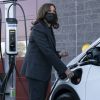 +8 +1
+8 +1The White House wants a robust electric vehicle charging network. Here's the plan
For electric vehicle owners who long for the freedom of the open road, range anxiety has been a constant source of concern. The Biden administration hopes to change that, announcing this week a multi-billion-dollar plan to beef up the nation's electric vehicle charging system — a step experts say is vital to reducing America's carbon footprint and improving the accessibility and practicality of nontraditional vehicles.
-
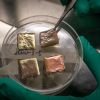 +24 +4
+24 +4Smart roof coating reflects heat in summer and traps it in winter
Berkeley Lab engineers have developed a roof coating that can keep a building warmer or cooler, depending on the weather. When it’s warm out, the material will reflect sunlight and heat, but this radiative cooling automatically switches off in winter, reducing energy use for both heating and cooling.
-
 +26 +1
+26 +1Hydrogen Is Not A Fuel, It’s A Cult
The sales pitch for hydrogen is heating up, although not as much as the Hindenburg did in 1937. In the UK, there are even advertisements for the fuel on the London Underground, which is quite an odd thing to see next to posters about the latest iPhone and vitamin supplements. It’s not like the average employee on their way to work is going to rush out and buy some H2 before reaching the office.
-
 +16 +5
+16 +5Panorama, The Electric Car Revolution: Winners and Losers
Tesla is now worth more than all the other major car makers put together, but how ethical is its supply chain? Darragh MacIntyre meets the African nuns who say Elon Musk’s company must do better.
-
 +20 +2
+20 +2Major U.S. utilities plan coast-to-coast, EV-charging network
More than 50 U.S. power companies have joined forces to build a coast-to-coast fast charging network for electric vehicles along major U.S. travel corridors by the end of 2023. The National Electric Highway Coalition was announced today by the Edison Electric Institute. Fifty EEI members; the Tennessee Valley Authority; and Midwest Energy Inc., a Kansas-based electric cooperative, make up the coalition.
-
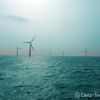 +15 +4
+15 +4Legacy Combustion Vehicles Drop Below 50% Share In Germany As Plugins Grab Over A Third Of the Market
Europe’s largest auto market, Germany, saw plugin electric vehicles take 34.4% share in November, up from 20.5% a year ago. Full electrics (BEVs) alone took 20.3% share, well ahead of diesel at 15.8% share. Combined legacy combustion powertrains fell below 50% share for the first time. At 198,298 sales, the overall auto market was down some 34% from November 2019.
-
 +10 +3
+10 +3EV charger 101: It’s not just plug-and-play
With the world shifting to electric vehicles, figuring out the best way to get a car charger for an electric vehicle installed is going to become common challenge for many of us. Here's a look at what’s involved, and what factors to consider, when it comes to installing an EV charger in your home.
-
 +23 +3
+23 +3Cows toilet trained to reduce greenhouse gas emissions
Cows can be toilet trained in order to reduce greenhouse gas emissions, researchers have said. In the study, which took place in Germany, scientists trained the animals to use a designated toilet. Their urine was then collected and treated. The ammonia from cows' urine turns into the greenhouse gas nitrous oxide when it's mixed with soil.
-
 +12 +2
+12 +2Hydrogen-powered vehicles: A realistic path to clean energy?
Each morning at a transit facility in Canton, Ohio, more than a dozen buses pull up to a fueling station before fanning out to their routes in this city south of Cleveland. The buses — made by El Dorado National and owned by the Stark Area Regional Transit Authority — look like any others. Yet collectively, they reflect the cutting edge of a technology that could play a key role in producing cleaner inter-city transportation.
-
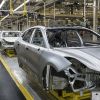 +21 +7
+21 +7One of the biggest myths about EVs is busted in new study
A new study lays to rest the tired argument that electric vehicles aren’t much cleaner than internal combustion vehicles. Over the life cycle of an EV — from digging up the materials needed to build it to eventually laying the car to rest — it will release fewer greenhouse gas emissions than a gas-powered car, the research found. That holds true globally, whether an EV plugs into a grid in Europe with a larger share of renewables, or a grid in India that still relies heavily on coal.
-
 +4 +1
+4 +1New Zealand to ban most single-use plastics by 2025
New Zealanders will be farewelling their plastics – bags, ear buds, spoons and straws – as the government attempts to match the country’s reality to its “clean green” reputation. Currently one of the top 10 per-capita producers of landfill waste in the world, New Zealand has announced it will ban a swathe of single-use plastics, including cotton buds, bags, cutlery, plates and bowls, straws and fruit labels.
-
 +21 +3
+21 +3The U.S. Can Get to All Electric Vehicles by 2035
If all cars and trucks sold in the United States are electric by 2035, it could save consumers in the United States some $2.7 trillion over the course of the next 30 years, working out to roughly $1,000 in savings per household per year, a new analysis finds. And if you’re itching to start seeing that cash, you’re in luck. The report says that recent advances in technology mean it’s more feasible than ever for the U.S. to fully make the switch to electric cars and trucks, and soon.
-
 +3 +1
+3 +1Cycling is ten times more important than electric cars for reaching net-zero cities
Active travel can help tackle the climate crisis earlier than electric vehicles – even if you swap the car for a bike for just one trip a day.
-
 +26 +3
+26 +3World's First Plant to Recycle All Forms of Plastic Begins Construction
There is no doubt about it. We have a plastic problem. According to Plastics Europe, 350m tonnes of plastic is produced annually, and only 9% of that plastic is ever recycled. This plastic pollutes our oceans and shows up everywhere as microplastics. More alarmingly, according to the World Economic Forum, this problem is predicted to increase tenfold by 2025 if solutions aren’t found.
-
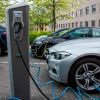 +21 +8
+21 +8Electric cars rise to record 54% market share in Norway
Norway became the first country in the world where the sale of electric cars has overtaken those powered by petrol, diesel and hybrid engines last year, with the German carmaker Volkswagen replacing Tesla as the top battery-vehicle producer, data shows.
-
 +15 +2
+15 +2Norway has switched to electric cars. And in their cities you can breathe cleaner air than ever
When we look at Norway and we see the enormous success of the introduction of the electric car, we can see the result of enormous work from the public sector that literally pushed people to buy this type of vehicle. A bet that began much earlier than we think and that has allowed the Nordic country to be a world leader in the implementation of this technology in sales per inhabitant.
-
 +28 +6
+28 +6How superfast charging batteries can help sell the transition to electric vehicles
Israeli company StoreDot recently announced it can now mass produce electric vehicle batteries that can be fully charged in just five minutes. “The bottleneck to extra-fast charging is no longer the battery,” claimed the firm’s chief executive. But is this fast-charging battery really a gamechanger? And if so: exactly how?
Submit a link
Start a discussion




















